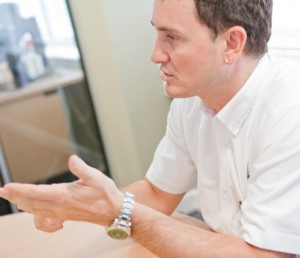
Steve Jackson OBE, founder of Recycling Lives, Furniture Donation Network and BulkyWaste.org
Since the recent launch of community dot-com projects, Bulky Waste and Furniture Donation Network, by Steve Jackson OBE of Recycling Lives, the company’s PR team has received numerous phone calls and emails from companies asking how they can get involved. These conversations have provided valuable feedback and an insight into the motivation of companies for whom national community dot-com projects present a unique opportunity.
In many cases, the questions raised have centred on the basis for community dot-com schemes and the reasons behind their development.
In order to give companies an insider look at these innovative new ventures, the Recycling Lives PR department has interviewed Steve
Jackson…


